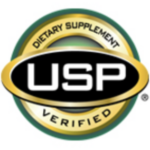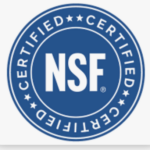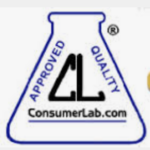Choosing Nutritional Supplements
There are many factors that can make it difficult to get all the nutrients you need through your diet: genetics, environment, lifestyle, health conditions, access to or the ability to eat nutrient-dense plant foods. Adding nutritional supplements to your diet can provide an important support to your body’s ability to self-heal.
If you’ve decided to take supplements, you’ll want to make sure you’re getting high quality ingredients that will be easily absorbed and used by your body. Unfortunately, it’s not safe to assume that every supplement on the drugstore shelf actually contains what’s listed on their ingredient list and in the amounts they claim.
To make sure that the supplement you are taking is actually supporting your body, whether it’s a multivitamin or a targeted nutrient like Vitamin D, it’s important to carefully research the brands you purchase.
Not All Supplement Brands Are Created Equal.
Here’s why:
FACT: Not all supplement brands use high quality nutrients and many include additives, fillers and toxic elements like heavy metals and pesticides.
-
-
-
- Currently, there are no regulations overseeing the production of nutritional supplements. The FDA does not verify the efficacy, safety or what the supplier says is actually in the packaging and does not guarantee that what you are taking is free of heavy metals, pesticides, bacteria, etc.. Unfortunately, the law doesn’t require that the manufacturer or seller prove that their claim is factual or accurate before it appears in the store.
- Some supplement labels feature misleading words like “verified,” “certified,” or “approved” with no backing to confirm their claim. Just because they advertise that their product is the best doesn’t mean that their claim has actually been verified.
-
-
Here’s what you can do:
Make sure the brand you purchase has been 3rd party tested or the company publicizes information about how they quality control and source their ingredients.
-
-
-
- Read the ingredients list carefully, make sure the capsules are vegan and no artificial colors, flavors or additives have been included.
- Check to see if the packaging displays a 3rd party tested certification logo. USP, NSF International, Labdoor, and ConsumerLab.com are 3rd party labs in the business of testing and certifying nutritional supplements. If a supplement displays their seal it assures that the product contains the amount of the ingredient advertised on the label and that it isn’t contaminated with dangerous substances.
- Visit the brand’s website if the packaging doesn’t have a 3rd party tested certification seal. Unfortunately, only a small percentage of companies actually pay to have their products certified. If you can’t find a supplement brand with a certification seal, go to the website of the brand you are considering buying and look for information about their quality testing and product sourcing. Read their “Home” and “About Us” webpages. If they don’t have any information about how they source their ingredients or test their products, send them a quick email to ask. If they can’t provide the information, do not purchase from them.
- Stay away from store labeled brands. As a general rule, it’s a good idea to avoid brands like 365, Kirkland, CVS, Trader Joes, etc. Store labeled brands are not required to disclose their actual manufacturer and the quality of their ingredients, so you don’t know where the product is coming from and it’s not uncommon for the store to change manufacturers frequently without the customer being aware. This can cause quality inconsistencies. Also, store brand labeled products are often created at a cheaper price point which could mean lower quality ingredients.
- Check out Labdoor’s list of tested brands. Labdoor ranks each product they test for quality and reports it publicly on their website.
- Consider purchasing a subscription to ConsumerLab.com. For a small monthly fee you can get access to their 3rd party testing results, those that passed and those that failed. They collect several brands of a product and independently test, review, compare, and rate them.
-
-
Understanding How Your Body Absorbs the Nutrient Will Help You Select the Most Effective Product.
Here’s why:
FACT: Just because you are taking a supplement doesn’t mean your body is actually absorbing the nutrients and putting them to use.
-
-
-
-
- Absorption requirements vary depending on the form of the nutrients you are taking and the dosages. Some forms are fat soluble and best taken with food, while some require to be taken on an empty stomach. Others may require support nutrients in order to get the best absorption and to increase their effectiveness. Understanding the best form of a nutrient for your body is essential. [For example, magnesium can be purchased in several forms: magnesium glycinate, magnesium citrate, magnesium oxide, magnesium chloride, magnesium lactate, magnesium malmate, and magnesium sulfate. Each form is processed differently in your body and can be used for a different purpose.]
- Not all supplements are safe for everyone. People with certain health conditions or taking specific medication should understand the potential side effects and consult their doctor before taking any type of supplement.
-
-
-
- Here’s what you can do:
Read the label carefully and do your homework.
In addition to doing a Google search for any recent studies, check out these websites when I want to learn about dosages, side effects, benefits, and risks of a specific nutrient:





